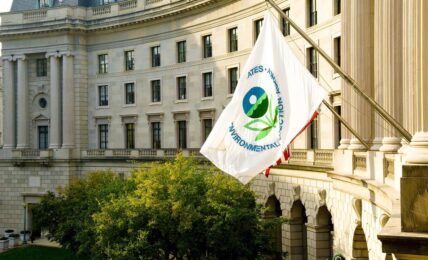JetBlue announced today an expansion of its Sustainable Aviation Fuel (SAF) program, with the launch of a new partnership with World Energy and World Fuel Services. The new agreement will enable JetBlue to begin using SAF on flights from Los Angeles International Airport (LAX), starting this month.
Air transport has come under increasing scrutiny in recent years as a significant contributor to GHG emissions. According to European Commission estimates, aviation accounts for 2% of global GHG emissions. SAF is seen by market participants as one of the key tools for the industry to address its emissions impact, as it generates 80% less lifecycle carbon emissions than conventional jet fuel. SAF is generally produced from sustainable resources, like waste oils and agricultural residues, or even from carbon captured from the air, rather than from fossil fuels.
Earlier this year, JetBlue launched a series of sustainability initiatives and emission reduction targets, including a goal to reach net zero carbon emissions by 2040. The airline announced in August 2020 that it had become the first major U.S. airline to achieve carbon neutrality, primarily through the use of offsets. The company acknowledged, however, that its climate offsetting strategy was intended to serve as a bridge to other industry-wide environmentalEnvironmental criteria consider how a company performs as a steward of nature. More improvements like fuel with lower emissions. At the time, JetBlue also announced an agreement with renewable fuel supplier Neste for the use of sustainable fuels for its San Francisco operations.
Sara Bogdan, JetBlue Director of Sustainability and EnvironmentalEnvironmental criteria consider how a company performs as a steward of nature. More SocialSocial criteria examine how it manages relationships with employees, suppliers, customers, and the communities where it operates. More GovernanceGovernance deals with a company’s leadership, executive pay, audits, internal controls, and shareholder rights. More, said:
“Sustainable aviation fuel is one of the most promising ways to rapidly reduce air travel emissions and help our industry move toward our net-zero goals. We are focused on growing our use of sustainable aviation fuel to replace conventional fossil-based jet fuel in our focus cities as it becomes available. It has not historically had the same policy support as other low carbon fuels and comes at a premium today. We’re excited by the prospect of additional policy support to help grow and scale sustainable aviation fuel, helping to usher in a lower-carbon future for aviation.”
Under the terms of the partnership, JetBlue will increase the use of SAF by 1.5 million gallons per year for at least three years, about 5% of the fuel used by JetBlue at LAX. World Energy will supply the sustainable fuel made from inedible agricultural waste from its California facility and World Fuel Services will facilitate the delivery to LAX.
Bryan Sherbacow, Chief Commercial Officer, World Energy, said:
“JetBlue is taking aggressive action utilizing tools available today to deliver on their net-zero carbon emissions goals. Expanding commercial use of sustainable aviation fuel is critical in changing the industry’s carbon outcomes. World Energy is excited to partner with JetBlue in fueling their success in transitioning to a zero-carbon aviation industry.”
Brad Hurwitz, Senior Vice President – Supply and Trading, World Fuel Services, added:
“We are honored to support JetBlue’s comprehensive sustainability strategy through our steady supply of sustainable aviation fuel. Since 2014, World Fuel Services has delivered more than 22.1 million gallons of cleaner-burning, low-carbon sustainable aviation fuel. With World Energy, we continue to focus on increasing sustainable aviation fuel availability and supply chain efficiency for aviation.”
The post JetBlue Signs New Sustainable Aviation Fuel Partnership for LAX Flights appeared first on ESG Today.


